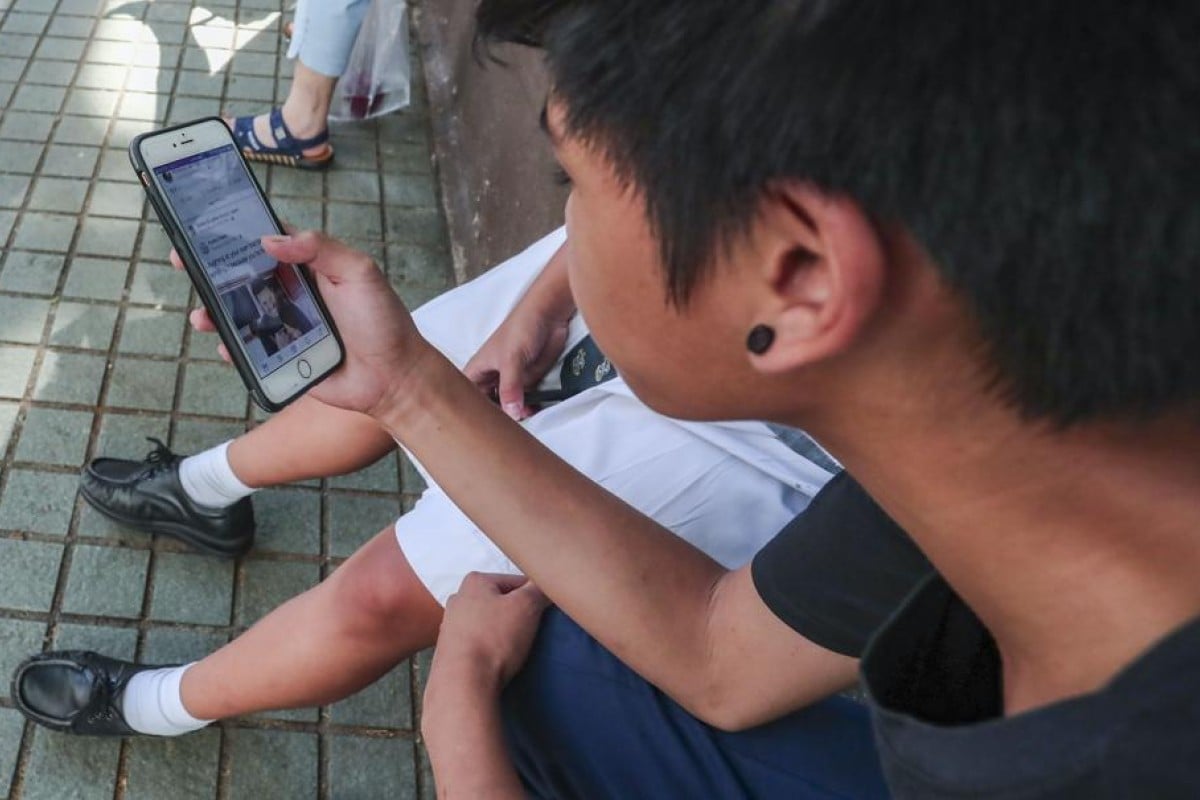
How social media is harmful to teenagers and how young Hongkongers cope with it
 The longer students spent on social media, the more exhausted they felt.
The longer students spent on social media, the more exhausted they felt. A recent study has found that social media use may be having serious effects on the mental health of young Hong Kongers.
A poll by the Hong Kong Paediatric Society (HKPS) and Hong Kong Paediatric Foundation (HKPF) of over 2000 primary and secondary school students found that 68 per cent felt mentally exhausted and were more likely to experience negative emotions the longer they spent on social media.
They also expressed a greater concern for their online image and disappointment at their posts not receiving ‘likes’.
"I've grown up in a competitive society and I'm always about pushing my limits," says Joy Pamnani, 19, of the University of Hong Kong. "But I've slowly told myself to let go and I'm starting to care less about the number of likes."
Face Off: do Hong Kong kids spend too much time on social media?
It's important to note the reason young people crave likes online is because they feel lonely or unable to express themselves in the real world, and thus placing more importance on their online lives in which socialising and expressing oneself are easier. However, that isn't the case for everyone. Some find the cyber space lonely as well.
Chloe Lau Hong-ching, 13, of St Mary Canossian College describes it as a vicious cycle in which she spends time watching "boring videos" online, but the more she watches the more negative and bored she feels, but still she cannot stop and it results in mood swings.
"I guess I feel like that because I'm too bored and lonely," Chloe says. "Even though I'm on social media, nobody is chatting with me because everyone is busy with something."
3 things teens wish their parents would do when it comes to social media
Social media also gives its users a chance to see what their friends are doing, and that results in one big side effect of spending time on social media: #FOMO. That is the fear of missing out.
Niharika Singh, 17, of Delia School of Canada says scrolling through her platforms isn't always negative, because "sometimes it's fun to see the places your friends are going to, but sometimes it feels like you're missing out on life.
"When you see your friends having fun you compare what you're doing to what they're doing," Niharika adds. "That's not always healthy. I'm usually on social media when I'm bored, and instead of ridding me of that boredom, it shows me all the ways other people are having fun."
5 social media detox tips that will make you want to switch off your phone
Secondary school students were more affected than primary school students, which Secretary General of the HKPF, Lilian Wong put down to parents paying more attention to their children’s social media use and being more influential role models to them when they are younger.
Chairman of the HKPF, Chan Chok-wan, recommended that parents teach children from an early age about social media use and remain engaged with them on the subject as they get older to help them manage their online-offline life balance.
Chloe is an example of how parental support can be hugely helpful.
"When I don't get many likes on my posts and I feel sad about it I'll tell my parents about it," says Chloe. "My parents remind me this isn't important and that I don't have to care, which makes me feel a lot better. My parents always help me cope with my insecurities and anxiety on social media."
